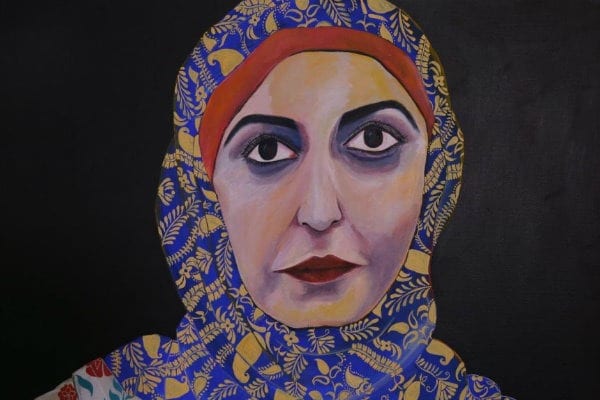In May of 2017 he was sentenced to 18 years in prison.
Amani, the eldest of three girls, was five months pregnant with her first child when she lost her mother. The immediate aftermath and the trial were uniquely and utterly shattering.
“It was devastating and when I look back I associate it with a complete loss and lack of control,” the Sydney lawyer and now mum of two says. “That’s the thing victims of crime often experience in these situations. It’s not just because of the trauma itself but because you have no control over the narrative that plays out.”
While Haydar and her sisters were coming to grips with the devastating violent crime and grief that derailed their lives, they were at the centre of a major media story.
“It was exhausting because you are just a witness, an outsider,” she says. “It’s very different being the person writing about it yourself or telling the story yourself, as opposed to being talked about and followed down the street with a camera. It’s not an empowering situation.”
Haydar says one of the saddest aspects of what happened was that it felt like her mother’s story was lost: her experience was diminished by virtue of it not being told.
“In a trial a lot of the complexities of a victim’s life disappear,” Haydar says. “The primary victim in this case was our mum but because she wasn’t there, she wasn’t able to tell her story.”
Criminal trials have a narrow focus.
“The legal process draws a lot on whether there was a history of violence [while] my mum’s experience of emotional abuse before the murder wasn’t talked about at any point because it’s not considered directly relevant,” Haydar says. “The emotional abuse was invisible in the process and it didn’t come through and there is no real way of shining the light on that unless you are part of the story.”
Amani felt torn during the trial, wrestling with an intense desire to be vocal and fight for her mother’s rights and “do something” while also feeling completely exhausted and depleted.
“Accepting that I couldn’t do it at that time was very frustrating,” she says. “It was an inner battle where I felt so strongly about this injustice but also I was so weak and tired and had to try and sleep.”
https://www.instagram.com/p/BoiqvwpFy4g/?utm_source=ig_web_copy_link
She told herself that eventually she would write about her experience – and she kept a journal so she could do that – but she resolved to exercise self-care and not engage, so she could support herself, her sisters and her family.
With the exception of the two weeks immediately following the murder, Amani says the trial was one of hardest periods she experienced.
“I found it very confronting and I say that as someone who was very familiar with the formalities of a court room,” she says. “It was very daunting and emotional and we’d get home every evening completely exhausted desperately hoping we would get an outcome that felt just a little bit like justice.”
Amani says the verdict and sentence did give them that sense: under the current laws it was the best possible outcome they could have secured and yet it doesn’t undo the damage.
“A court cannot make up for everything but as far as legal outcomes it was as satisfactory as it could be,” she says. “You can still feel a real emptiness while also recognising a sense of justice. It’s bittersweet to get a good legal resolution but still face all the ongoing emotional challenges. I still struggle to put it into words.”
About a year ago Amani determined that was strong enough to start telling her story.
“I finished a second lot of counselling, my kids were a little bit bigger and my routine was more stable,” she says. “I was being invited to speak and initially I had always declined but I agreed to speak at a local Mental Health event about counselling and the impact of trauma.”
How I healed after my mother's murder @SBS_Life #IWD2018 #violenceagainstwomen
https://t.co/XsG76wmdnN— Sara 'local meme dealer' Saleh | ساره صالح (@SaraSalehOz) March 7, 2018
Since then she has been speaking, writing and even painting – she was an Archibald Finalist this year with a painting of herself holding a photograph of her mother.
“It’s another way of telling my mum’s sorry and keeping the spotlight on violence against women. I have maintained momentum in speaking out and I hope to continue. There is so much to be said.”
If you or someone you know is experiencing violence, call 1800 RESPECT on 1800 737 732 for advice or support. This free service providing confidential advice is open 24/7.
In an emergency, call the police on 000. All incidents of violence should be reported to the police.
For urgent support call Lifeline 13 11 14
If you are in danger, please call the Police – 000
If you are a man concerned about your own behaviour call the Men’s Referral Service’s number 1300 766 491
Amani Haydar and her sister Nour, will be speaking at the Feminist Writers Festival in Sydney on 3rd November. If you would like to purchase tickets please use the WomensAgenda code to receive a 15% discount.


